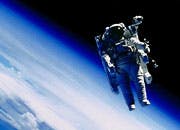- Science
- Natural Sciences
- SEE MORE
- classical
- general
- talk
- News
- Family
- Bürgerfunk
- pop
- Islam
- soul
- jazz
- Comedy
- humor
- wissenschaft
- opera
- baroque
- gesellschaft
- theater
- Local
- alternative
- electro
- rock
- rap
- lifestyle
- Music
- como
- RNE
- ballads
- greek
- Buddhism
- deportes
- christian
- Technology
- piano
- djs
- Dance
- dutch
- flamenco
- social
- hope
- christian rock
- academia
- afrique
- Business
- musique
- ελληνική-μουσική
- religion
- World radio
- Zarzuela
- travel
- World
- NFL
- media
- Art
- public
- Sports
- Gospel
- st.
- baptist
- Leisure
- Kids & Family
- musical
- club
- Culture
- Health & Fitness
- True Crime
- Fiction
- children
- Society & Culture
- TV & Film
- gold
- kunst
- música
- gay
- Natural
- a
- francais
- bach
- economics
- kultur
- evangelical
- tech
- Opinion
- Government
- gaming
- College
- technik
- History
- Jesus
- Health
- movies
- radio
- services
- Church
- podcast
- Education
- international
- Transportation
- Other
- kids
- podcasts
- philadelphia
- Noticias
- love
- sport
- Salud
- film
- and
- 4chan
- Disco
- Stories
- fashion
- Arts
- interviews
- hardstyle
- entertainment
- humour
- medieval
- literature
- alma
- Cultura
- video
- TV
- Science
- en
Stranded

Imagine not knowing where you are \u2013 and no one else knowing either. Today, that\u2019s pretty unlikely. Digital devices pinpoint our location within a few feet, so it\u2019s hard to get lost anymore. But we can still get stranded.\nA reporter onboard an Antarctic ship that was stuck for weeks in sea ice describes his experience, and contrasts that with a stranding a hundred years prior in which explorers ate their dogs to survive.\nPlus, the Plan B that keeps astronauts from floating away forever \u2026 how animals and plants hitch rides on open sea to populate new lands \u2026 and the rise of the mapping technology that has made hiding a thing of the past.\nGuests:\n\n\nHiawatha Bray \u2013 Technology reporter, Boston Globe, author of You Are Here: From the Compass to GPS, the History and Future of How We Find Ourselves\n\n\n\nAndrew Luck-Baker \u2013 Producer, BBC radio science unit, London\n\n\nAlan de Queiroz \u2013 Evolutionary biologist, University of Nevada, Reno and author of The Monkey\u2019s Voyage: How Improbable Journeys Shaped the History of Life\n\n\n\nChris Hadfield \u2013 Astronaut and author of An Astronaut\u2019s Guide to Life on Earth: What Going to Space Taught Me About Ingenuity, Determination, and Being Prepared for Anything. His Space Oddity video.\n\nDescripci\xf3n en espa\xf1ol\nFirst released February 3, 2014.\nLearn more about your ad choices. Visit megaphone.fm/adchoices